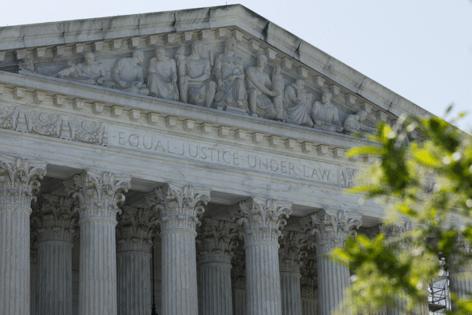Supreme Court decides Medicare reimbursement calculation
Published in News & Features
WASHINGTON — The Supreme Court sided on Tuesday with the Department of Health and Human Services in a dispute over the rate under Medicare the government pays to hospitals that serve low-income patients.
The 7-2 decision rejected an attempt from a group of more than 200 hospitals across 30 states to change the formula the government uses to calculate reimbursement for hospitals that serve a disproportionate share of low-income patients.
The justices decided that the calculation hinges on how many patients received Social Security Supplemental Security Income program benefits in a given month, rather than the larger group that are enrolled in the program generally.
Justice Amy Coney Barrett, writing for the majority of the court, said that the phrase in the law specifying that the formula be based on patients “entitled” to the SSI benefit meant the portion of patients who actually received a check in the month they were hospitalized.
“We must respect the formula that Congress prescribed,” Barrett wrote.
The hospital groups had asked the justices to overturn a decision from the U.S. Court of Appeals for the District of Columbia Circuit which issued a similar holding restricting the reimbursement calculation to those patients who received the SSI benefit.
The hospitals argued that Congress meant for the reimbursement calculation to be broader to include patients who were enrolled in the SSI program but not eligible for a payment at the time, or receiving non-cash benefits like rehabilitation.
Hundreds of hospitals across the country rely on the reimbursement to keep treating patients well, or even keep their doors open, the hospitals had told the justices in their petition.
The case explicitly covers reimbursement for years between 2006 and 2009, and the hospital group said in court filings that the court’s decision in the case could impact more than $4 billion in payments.
Justice Ketanji Brown Jackson, in a dissent joined by Justice Sonia Sotomayor, criticized the majority for a decision that elevated the particulars of Social Security payments over what Congress intended with the Medicare payments program.
Jackson said that the majority’s focus on whether patients received a check in a particular month ignored the reality of the Social Security program, where recipients’ eligibility for payments can fluctuate month to month and recipients cannot even receive checks until a month after they are enrolled in the program.
“The illogic of the majority’s interpretation strongly signals that what the majority believes Congress ‘chose’ is not actually what Congress intended or accomplished,” Jackson wrote.
The case is Advocate Christ Medical Center et al. v. Kennedy, Secretary of Health and Human Services.
©2025 CQ-Roll Call, Inc., All Rights Reserved. Visit cqrollcall.com. Distributed by Tribune Content Agency, LLC.







Comments